For most Catholic families today, choosing a saint name as a given name is no longer a requirement. However, some folks still appreciate the tradition and among religious parents, saint names are the way to go. You might think choosing a saintly name will box you in but there are tons of saints for you to choose from. Yes, there are countless appellations from a variety of naming traditions for new parents to choose from. This means that there are plenty of saintly names that go virtually unused in the US and these unique baby names deserve some love!
If you want to go with a saint name but are looking for something that feels singular, you have come to the right place! We have rounded up dozens of saint names for you to consider. We’ll kick the list off with names for girls and then we will explore appellations for boys. If you have not found a saint name that is suitable for your child, keep reading as we have also included some really unique options, specifically from Irish saints for you to also take a look at. Now, let’s find the perfect saint name for your baby!
Unique Saint Names for Girls
Celine

Celine is baby name on the rise today. It is a French form of Celeste, meaning “heavenly.” It comes in near the top of the list of best saint names for girls. Mother Celine was beatified on October 27, 2007 at Saint John Lateran Basilica, Rome, Italy. The miracle which qualified Mother Celine for this Beatification was the cure of a life-threatening head trauma to her great, great, great grandson, Andrew Mecherzynski-Wiktor.
Zita

Zita was once a popular name for girls in the US but it fizzled out by the 1930s. The name has cross-cultural appeal as it is found in Italian, Persian, and Greek naming traditions. Thus, there are a couple of potential meanings for this name including “seeker” and “little girl.” A thirteenth-century Tuscan saint, Zita is the patron of homemakers.
Delphina

Saint Delphina, also known as Dymphna, is the patroness of those suffering nervous and mental afflictions as well as victims of incest. Delphina is a French form of a Greek name that brings us Delphine. The name means “of Delphi” or “womb.” The appellation has never been popular in the US, but you can help change that.
Mabyn

Mabyn is a name derived from Cornish and English. It is taken to mean “youth.” This rare sixth-century saint’s name has a contemporary feel despite it being a rather ancient option. Saint Mabyn was the daughter of King Brychan of Wales.
Faustina

St. Faustina Kowalska was a Polish nun and mystic who wrote about Jesus’ Divine Mercy in her diary. Faustina is a name of Latinate origin and means “fortunate one.” In addition to being a saint name, the name also belonged to the wife of ancient Roman Emperor Marcus Aurelius and a famous Italian opera singer.
Eleanore

This unique spelling, Eleanore, was once a popular option for baby girls in the US. The name had a great run until the 1940s when it fell off the charts. Saint Eleanore was once the queen of England before becoming a nun in the 13th century.
Lourdes

Catholics love names honoring the Blessed Virgin Mary, and apparition place names are one way to do so. Lourdes is a small town in France where Mary appeared to a young girl, St. Bernadette, in the nineteenth century, and even those who aren’t practising Catholics are drawn to it. Pop icon Madonna named her daughter Lourdes.The name was fairly popular in the US from the 1950s to the early 2000s.
Hilaria

Hilaria, the ancient Roman form of Hilary, is popular in Spain and Poland today. Unfortunately, the name has never been a popular choice in the US. Saint Hilaria was the daughter of emperor Zeno who became a martyr at the tomb of St. Afra.
Magdalene

Magdalene has long been used to honor St. Mary Magdalene, the repentant sinner in the bible who was the first to see the risen Christ. The name is English from Aramaic and means “woman from Magdala” or “high tower.” The name was once a very popular choice until the 1940s when it fell from fashion.
Inez

Saint Inez was born near Valencia, Spain, of poor parents. She joined the Augustinian hermitesses at Beniganim taking the name Sister Josepha Maria of St. Agnes. She practiced severe austerities, was known for her prophesies. Inez is a Spanish form of Agnes that means “virginal.”
Perpetua

Perpetua names the third-century saint, who was martyred as a young nursing mother for her faith. The name is a mouthful so you might be looking for some fresh nicknames for this one. They include Pia, Pippa, Peppa, and Poppy, which are on-trend at the moment. As you might have guessed, the name means “perpetual.”
Leila

Pronounced LEEL-ya, Lelia is derived from Italian and the meaning is unknown. If it is related to the Arabic name often spelled Layla, the name means “night.” The name had a great run in the US up until the 1960s. Lelia is now generally identified with the Dalcassian saint Liadhain, the great-grand-daughter of the prince Cairthenn whom St. Patrick baptized at Singland.
Zelie

Zelie is all the rage among the Catholic faithful right now, and for good reason. It’s a cute, modern-sounding name with contemporary religious significance. In October 2015 Pope Francis canonized Louis and Zélie Martin, the parents of the well-known and loved St. Therese of Lisieux. Generally said ZAY-lee or ZEL-lee, in the spelling Zaylee, the name has been in the US top 1000 since 2015.
Verena

Verena was a third century Egyptian nurse who went with the Theban Legion to Switzerland. Her name might be a Coptic form of Berenice which is also the source of Veronica. Verena is a name of Latin origin that means “integrity.” It was last a popular choice in 1898 in the US! That means the name is ripe for a comeback today.
Unique Saint Names for Boys
Anselm

There is a Saint Anselm College in New Hampshire. Saint Anselm was a Benedictine monk, abbot, philosopher and theologian of the Catholic Church, who held the office of Archbishop of Canterbury from 1093 to 1109. The name itself is of German origin and means “with divine protection.”
Zeno

Zeno of Verona was either an early Christian Bishop of Verona or a martyr. Zeno is a name derived from Greek, related to the name Zeus. It is a different form of the name Zenon. This appellation’s root means “guest.”
Ambrose

St. Ambrose of Milan is revered as a Doctor of the Church and was the teacher of the great St. Augustine. The name also belonged to one of the four great Latin teachers of Christianity, who also developed the use of music in church services. Ambrose is derived from Latin, related to Ambrosia, the food of the gods. Thus, this name means “immortal.”
Urban

Urban is a criminally overlooked name of Latin origin that means “from the city.” In the New Testament, Urban is an active member of the Christian church in Rome. This name is rather rare in Europe today and it has never been a popular option in the US. Introduce those around you to this amazing appellation!
Athanasius

Pronounced ath-ah-NAY-shus or ath-ah-NAY-zee-us, Athanasius is a mouthful of a name but it does hold potential! This complex Greek name was borne by several early saints and patriarchs of Alexandria. The name is of Greek origin and also means “immortal.”
Sylvester

Pope Sylvester I was the bishop of Rome from 31 January 314 until his death. He filled the see of Rome at an important era in the history of the Western Church, yet very little is known of him. The name Sylvester comes from Latin, related to the name Sylvia, meaning “wood” or “forest.” The name was last popular in the US in 1994 but we expect to come back in the coming years.
Joachim

According to Catholic tradition, the names of the Blessed Virgin’s parents were Joachim and Anne, and Joachim is used with some regularity across Europe today. The Spanish variant Joaquín is likely more familiar to American parents. But, we are fans of Joachim as well. The name is pronounced jo-AHK-eem or yo-AHK-eem and it is derived from Hebrew. It means “established by God.”
Remi

Remi is the French form of Remy and it means “oarsman.” The name landed in the top 1000 in the US for the first time in 2019 and it is expected to only grow in popularity over the next several years. As a saint name, Remi refers to Saint Remi (or Remigius), a French bishop and confessor.
Kolbe

Franciscan priest St. Maximilian Maria Kolbe offered himself in place of another who was sentenced to death in Auschwitz and was canonized for his martyrdom. He’s a huge favorite among Catholic families. Kolbe is a name that originated in Medieval German, meaning “club.” You could also honor this saint with the name Maximillian. Kolbe has never been a popular option among American parents but you could change that by choosing this charming saint name.
Peregrine

Peregrine is both a boy’s name and a girl’s name of Latin origin meaning “traveler” or “pilgrim.” The name was borne by several early saints including Saint Peregrine Laziosi, the Italian patron saint of cancer patients. The saint name has an aristocratic reputation in the UK today but it is scarcely used by American parents.
Nicanor or Nicodemus

With the popularity of Nicholas and Dominic and a whole host of other names that result in the nicknames Nick or Nico, Nicanor and Nicodemus should get more play. Nicodemus in the bible helped prepare Jesus’ body for burial; a recent St. Nicanor was a Franciscan priest martyred in 1860 in Syria. The saint names share the same Greek root that means “people of victory.”
Juniper

Juniper is a lovely botanical name of Latin origin that means “young.” The most notable people to have the saint name include saint Brother Juniper, a follower of Saint Francis renowned for his generosity. Blessed Junipero Serra, who founded the first of the California Missions, took his name from the earlier Saint Juniper. This name has never been a popular choice for boys born in the US.
Emilian

Saint Emilian of Cogolla was a Spanish hermit. Emilian is the Romanian form of Emil, a name of Latin origin that means “rival.” Emilian is an undiscovered form of Emil for American parents. This saint name rolls right off the tongue so if you are looking for an alternative to Emil, we hope you have found it in Emilian.
Clement
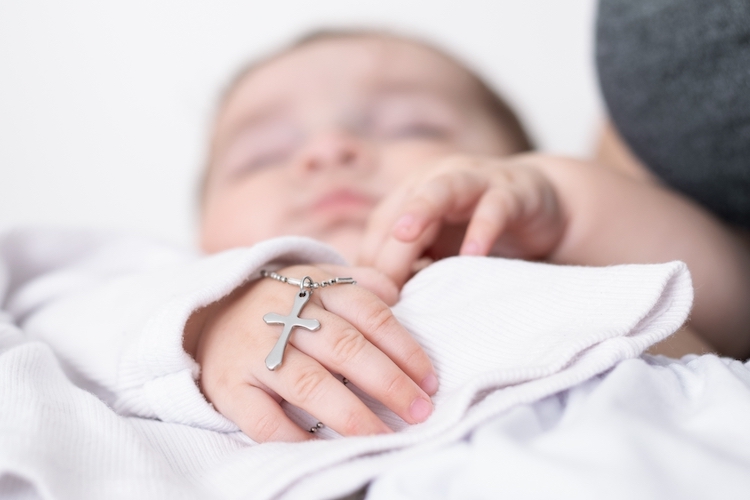
Clement is a boy’s name of Latin origin meaning “mild and merciful.” Clement of Rome was a leader in the church of Rome in the late first century AD. He is listed by Irenaeus and Tertullian as the bishop of Rome, holding office from 88 AD to his death in 99 AD. The name was once extremely popular in the US but it fell from fashion by the 1970s. We think it has so much timeless appeal!
Blaise
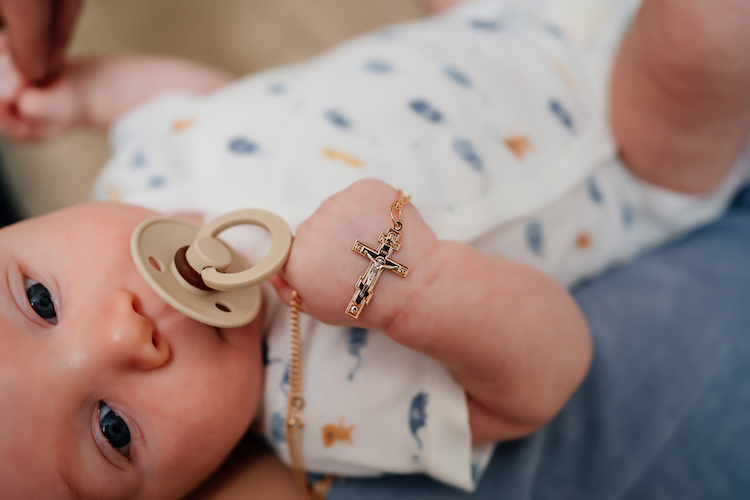
Saint Blaise, an Armenian bishop, is the patron saint of wild animals and those with sore throats. Blaise, although it sounds modern, is an ancient name derived from French, meaning “to lisp.” Blaise has landed in the top 1000 for boys in several recent years but we think more parents will choose this saint name soon.
There you go! What did you think of these unique saint names? We hope you found some appellations to consider for your baby on the way. If you would like to learn about even more saint names, we have rounded up a bunch of Irish saint names for you to also consider. Take a look!
Take a Look at These Stunning Irish Saint Names for Girls!
25. Eithne / Enya

This phonetic Anglicization of the Irish name Eithne was made familiar by the single-named Irish singer and composer, Enya. Just a heads up, we will be providing you with Anglicized or at least more manageable forms of this names when necessary! St. Eithne was the daughter of a king and an early Irish convert to Christianity. This Irish baby name means “fire.”
24. Brigid / Bridget

Born around 450, St. Brigid is one of the three chief saints of Ireland, along with St. Patrick and St. Columba. Born out of wedlock to a pagan chieftain and an enslaved Catholic mother, Brigid was raised a Catholic and was involved in many charitable acts. There are a number of notable Irish women with this name including more saints on this list who enjoyed its many variations. Brigid or Anglicized, Bridget, are both excellent choices. This Irish baby name means “power, vigor, virtue.”
23. Bronagh / Brona

Born in the 6th century, Bronagh is well known for the bell from Cell Brónche (the church of Bronagh) in County Down. As a disciple of St. Patrick, Bronagh looked after shipwrecked sailors, and legend has it she used her bell to warn seafarers of any rising storms and to summon nuns to prayer. Brona is a little easier for most Americans to say and spell. This beautiful Irish baby name means “sorrow.”
22. Caoilfhionn / Kaylin

There’s very little known about this virgin saint from the 6th century, but a church bearing her name was apparently built in Roscommon. Meaning “slender” and “pure,” this tricky-to-spell name is both pretty and unusual. We suggest going with Keelan or even better Kaylin. This name is traditionally gender-neutral, but today it is favored for little boys in Ireland, often spelled Caelan.
21. Ciara / Kiera
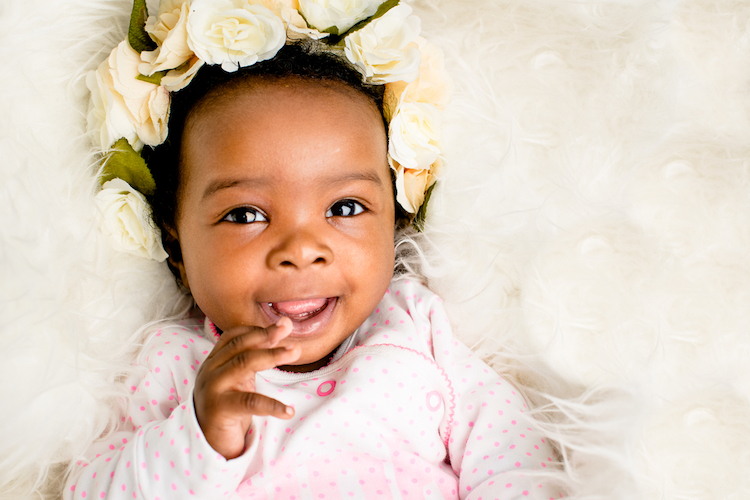
The life of St. Cera, born in the 7th century, is often mixed up with another Cera born a century earlier. Yet, legend has it that when a town went up in flames, St. Brendan instructed the inhabitants to seek the prayers of Cera. Following her prayers, the town was saved. She would go on to form her own monastery, Kilcrea, in Cork. We love the name Ciara but its traditional pronunciation is closer to Kiera so we favor that option to honor this saint. This Irish baby name for girls means “little dark one.”
20. Darerca / Dareka

One of the wilier names on this list, but nonetheless one belonging to the alleged sister of St. Patrick, who had at least 17 sons, all of whom became bishops. As a saint, herself, a mother of saints, and of course, as sister to the Apostle of Ireland, your child will have a worthy Irish namesake. We prefer the spelling Dareka for American parents as it allows others to pronounce this one correctly. This name is so closely tied to the legendary saint that it means “St. Darerca.”
19. Fidelma

Fidelma “the red” was the sister to Eithne “the fair,” with both dying at the Well of Clebach. Along with her sister, she is included in the Acts of St. Patrick. He built a church in their honor as a testament to his reverence for them. Fidelma is said to be St. Patrick’s first convert to Christianity. The pronunciation of this name is pretty straightforward, just be sure to put emphasis on the last syllable, and say fid-el-MA. Fidelma means “beauty, forever good.”
18. Ite / Ita

Ite is deceptively simple in that most will say it wrong with confidence. Ite is pronounced Ee-da so we suggest the Anglicized spelling, Ita. Saint Ite, baptized Deirdre (also a great name), was born in 480 in County Waterford. As a pious young woman, she traveled to Killeedy in County Limerick and founded a small convent. With a capacity of prophecy and “spiritual discernment,” she was held in great regard by contemporary religious men and women and was a foster mother to many future saints.
Ita is a beautiful Irish baby name that means “thirst for holiness.”
17. Maire / Myra

Although this name is not attributed to an Irish saint, it is one that belongs to a beloved saint worldwide. As the original name in Ireland for the Holy Virgin, it was held in such respect that it didn’t come into use until the 15th century. This name is not pronounced like mare, it is closer to Myra. Maire shares its meaning with Mary, “drop in the sea.”
16. Athracht / Attracta

Athracht lived in the sixth century and is associated with Conainne. Local tradition remembers her great healing powers and compassion. Her convents were famous for hospitality and charity to the poor. Athracht will likely throw some people so we suggest going with the Latinized form of the name, Attracta. The meaning of this name is “St. Athracht,” it’s completely tied to her.
15. Bega / Bridget / Becca

Bega is a shortened form of a name most Americans will recognize as Bridget. Bega means “tiny” or “life.” St. Bega is associated in legend with a number of miracles, the most famous being the “Snow miracle” in which snow fell around the lands of a monastery to prevent a land dispute. She is the subject of many an earthy folktale due to people’s attraction to miracles.
14. Begnet / Begneta

Two ruined churches in Dalkey are named for St. Begnet, one on Dalkey Island, and the other near the 15th-century stone townhouse now serving as Dalkey Castle and Heritage Centre. Like many other female, virgin saints, she is described as beautiful and desirable, but she refused her numerous suitors in favor of religious devotion. Begnet is a diminutive form of Bec, which also gives us Bega. This name also means “tiny” or “life.”
13. Breage / Breaca

Breage Parish Church is the Anglican parish church of the parish of Breage, Cornwall, England. It is dedicated to Saint Breage or Breaca, said to have been an Irish nun who came to Cornwall in the 5th-century. Since the traditions about Breage that have come down are late, the veracity of the details are doubted. This is so true that folks mixed up this saint’s gender and began calling her St. Brioc (a male name). The meaning of this is unclear and we think it is associated with Bearach which means “steep” or “pointed.”
12. Buriana / Breonna

St. Buriana is said to have been the daughter of an Irish king and travelled to Cornwall from Ireland as a missionary (this is a common Cornish theme) to convert the local people to Christianity. According to the Exeter Calendar of Martyrology, Buriana was the daughter of a Munster chieftain. Buriana is another form of Brian an Irish name meaning “strong” and “virtuous.”
YOU MIGHT ALSO LIKE: 25 Rare Celtic Baby Names for Girls That Are Virtually Unheard of in the US
11. Conainne / Dachonna

Conainne is somehow pronounced exactly the same as cognac, so you might want to go with this saint’s other name, St. Dachonna. Conainne was a female missionary who evangelized in the Soghain area of County Galway. She founded a church at Cell Conainne (“the church of Conainne”), in modern-day Kilconnell. It appears that the name of the more widely known St Connell was by error substituted for Connainne/Dachonna after the 16th century. This Irish baby name means “strong as a wolf” and shares the same roots with Connell.
10. Cere / Cyra

St. Cyra was a virgin saint and abbess of the monastery of Killchere (“Cyra’s Church”) in that part of Munster which was called Muscragia or Muskerry. This name is pronounced exactly like Kiera but without the A at the end. So, KEER. The names are related and thus it means “black” or “little dark one.”
9. Dymphna / Dimpna

St. Dymphna was born in Ireland in the 7th century. Dymphna’s father Damon was a petty king of Oriel. Dymphna devoted herself to christ and took a vow of chastity. Shortly thereafter, her religious mother passed away which caused her father to go mad. Eventually, he killed Dymphna after she fled his wrath in Belgium. St. Dymphna is known as the Lily of Éire, due to her spotless virtue. St. Dymphna’s name derives from the Irish damh meaning “poet.”
8. Edana

Edana of Ireland was ordained monastic by St. Patrick himself. She is the patron saint of several parishes in western Ireland. A “famous holy well,” known for its healing properties, was named for her. Some sources state that the city of Edinburgh, close to the site where she founded a convent, was named for her. Her Irish name means “little flame.”
7. Sárnait / Sourney

Sárnait, also known as Surney of Drumacoo or Sourney, was a 6th-century Irish saint. Surney was the founder of the church of Drumacoo, in the parish of Ballinderreen, County Galway. She was an associate of Colman mac Duagh, who was the bishop of the locality at the time. Sárnait is pronounced SAWR nit, which would be an interesting choice today! The name means “noble chief.”
6. Faber

There is a popular myth that St. Faber had a pet deer which carried the sacred books that she was entrusted with. One day, as she was travelling to meet Baron O Phelan at his castle in Boho, the deer was harassed by some hunting hounds. In order to escape, the deer jumped into the Sillees River and in the process ruined St Fabers books. The saint then placed a curse on the river that it would run backwards and sour. The meaning of this name is unclear. It could come from a Latin clan name meaning “smith” or it could be a form of an Irish name meaning “Constance.”
5. Samthann / Samhthann

Samthann, modernized spelling Samhthann (pronounced SAHW-en), was an Irish folk saint purportedly a Christian nun and abbess in Early Christian Ireland. She is one of only four female Irish saints for whom Latin Lives exist.
According to legenc, on one occasion a lascivious monk visited the saint’s monastery and attempted to seduce one of the virgins living there. When he left the monastery and crossed the river to meet the girl a giant eel rose out of the water, bit him on the genitals, and wrapped itself around his waist. The eel remained in this position until the monk returned to the monastery and begged for and received forgiveness from St Samthann.
This name is believed to be related to Samhain, a folk festival marking the end of the harvest season. Thus this name likely means “summer’s end.”
4. Femia / Femme / Eufemia
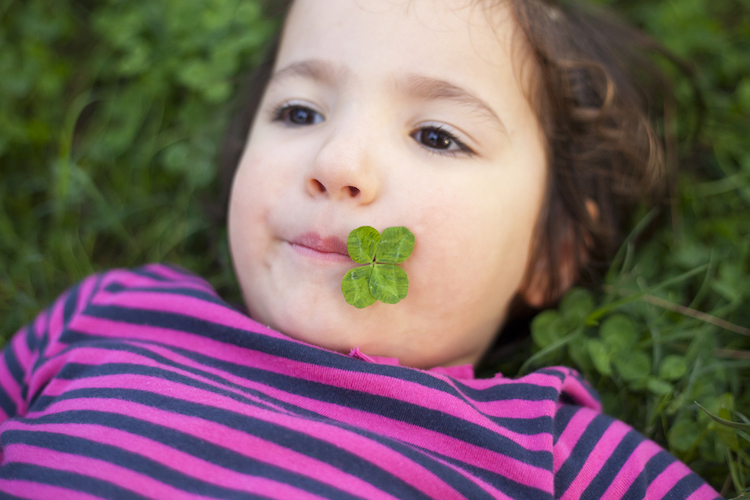
St. Femia lived towards the end of the 6th century. A sister of Saint Felim of Kilmore and Saint Daig of Inniskeen, little is known about this Irish saint. The name is traditionally pronounced FE-va but you could go with the Latinized, Euphemia. The Irish meaning of this name is “modest.”
3. Ia / Hia

Saint Ia of Cornwall (also known as Eia, Hia or Hya) was an evangelist and martyr of the 5th or 6th centuries in Cornwall. She is said to have been an Irish princess, the sister of Erc of Slane, and a student of Saint Baricus. A church of her namesake was erected on her grave in St. Ives. EE-ah is the Cornish pronunciation, but EYE-ah is also accepted. The name means “ice.”
2. Modwenna / Modwen

St. Modwenna or Modwen was an Irish noblewoman by birth and founded the abbey on an island in the River Trent. Modwenna spent seven years at the abbey with two other Irish nuns called Lazar and Althea, before the three embarked on a pilgrimage to Rome. Upon their return to England, they built a church at Stapenhill in honor of Saint Peter and Saint Paul. This name likely means “mannerly.”
RELATED: 25 Baby Names for Girls Inspired by Irish Saints to Celebrate St. Patrick’s Day
1. Cinnia / Cynnia

Cinnia, or Cynnia, was an Irish saint who lived during the 5th century. She was a princess of Ulster, the only daughter of Echu (or Echadius), a king in the land of Neil in Ireland. She converted to Christianity, but her father wanted her to marry, so Saint Patrick intervened on her behalf. She became a nun and converted many pagans to Christianity. Cinnia is an Irish name that means “beauty.”
Now, It’s Time to Find a Great Irish Saint Name for Boys!
25. Alibe / Alby

Because most of these names come from Medieval Ireland, we decided it was wise to present you with an Americanized form of the name when possible. For instance, Alibe which is pronounced All-bay is close to Alby. Saint Alibi was the first bishop of Emly in Munster, Alibe was believed to be a disciple of St. Patrick and even ordained by him. Legend has it Alibe was abandoned in the woods by his impoverished parents, where a wolf suckled him. Alibe comes from old Irish and means “white.”
24. Enda

This 5th-century monk was once a fighter. After many battles and conquests, in a bid to make him change, his sister, St. Fanchea, offered him the hand of a young woman in her convent. Unbeknownst to Enda, the woman was deteriorating. She died before the wedding and Fanchea used this as a sign to show Enda he had to end his brutal ways. He did. He would go on to found a monastery on the Island of Aran Mor. This name is more straightforward than most and it sounds like En-dah. This Irish baby name means “like a bird.”
23. Aeden / Aidan
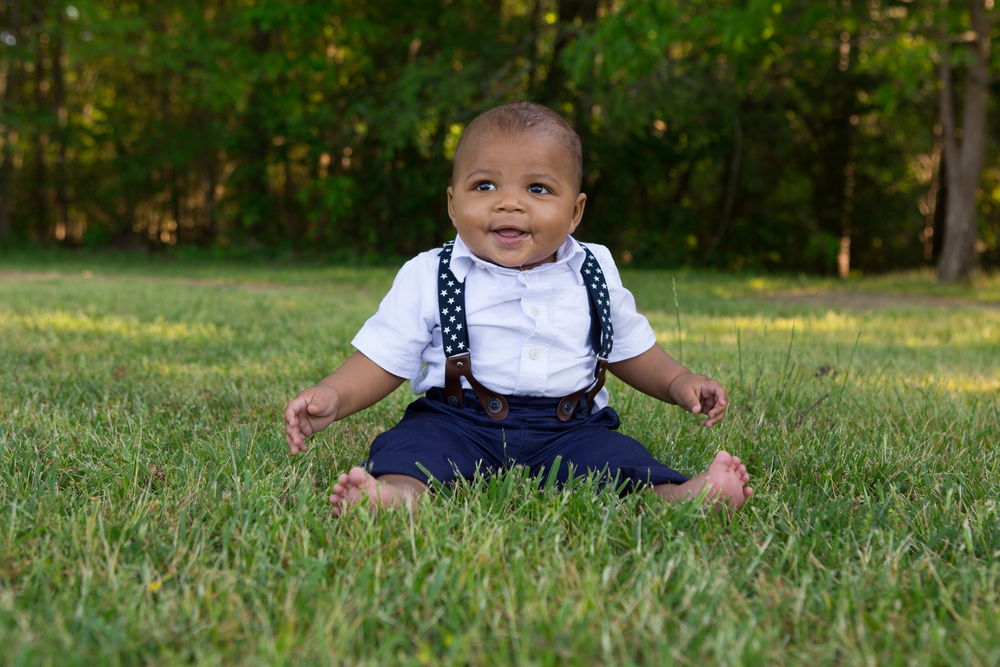
Born in Ireland, St. Aidan became a monk and then Bishop of Lindisfarne, a small island off the northeast coast of England. He was beloved for his eloquent preaching and charity to the poor. He performed many miracles including one instance in which he changed the direction of the winds to prevent a pagan attack on his monastery. There are a few ways to spell this Irish baby name Aidan, Aiden, Aodhan, and Aeden are a few. It means “little fiery one.”
22. Breandawn / Brendan

According to Irish legend, Saint Brendan the Voyager was the first European to touch American soil, and his name has been settled here for decades, peaking in the late 1990s. It first arrived on the US popularity charts in 1941, especially popular, not surprisingly, for Irish-American boys. St. Brendan traveled the seas in a very small boat. This beloved Irish baby name means “prince.”
21. Coinneach / Kenneth

In Gaelic, Coinneach means “attractive person” but it is also the name of a 6th-century saint who was one of the Twelve Apostles of Ireland. Having helped spread Christianity throughout Scotland and Ireland, he ended up in one of the last areas of Ireland to be converted. The name of that county where the saint conquered was called Kilkenny, or Cill Chainnigh, or the Church of Coinneach, in his honor. The name is pronounced Ko-in-ok. That’s a mouthful for a baby’s name! Kenneth is the Anglicized form of this Scotch-Irish name and it also means “handsome.”
20. Cahal

Saint Cahal, or Cataldo, the supposed abbot of a monastery in Shanrahan, is famous in Italy where he served in Taranto in the 7th century than he is in his native Ireland. Legend has it that Cahal was shipwrecked off the Italian coast in 666, having made a pilgrimage to the Holy Land. He stayed in Italy for the remainder of his life, and when his body was discovered in 1071 it was deemed “incorrupted.” There is no great Americanized form of this Irish baby name that is pronounced Ka-hal. It means “battle ruler.” Cahal is not too fussy and it could be a real possibility as-is.
19. Ciaran / Kieran

This hugely popular saint’s name means “dark,” so perfect for all raven-haired babies. Like many other saints of his time, St. Ciaran founded monasteries, but in particular one in the middle of Ireland, Clonmacnoise, on the advice of fellow clergyman St. Enda. He was a simple and devout man who died of the plague at the age of 33, around 545. Ciaran is pronounced KEER-an, and thus it might be best to go with the Anglicised Kieran. The name belongs to many Irish saints including its first-born one, Ciarán of Saigir.
18. Cillian / Killian

Born in County Cavan in about 640, Saint Kilian, also spelled Killian, and Cillian was an Irish missionary bishop and the apostle of Franconia, where he began his work towards the end of the 7th century. He converted many a pagan before he was finally beheaded. His legacy lives on in the Würzburg region, which celebrates the saint for two weeks in July. No matter how you spell this name, it’s pronounced the same Kil-eh-ahn. Fittingly, it means “church.”
17. Colm / Colman
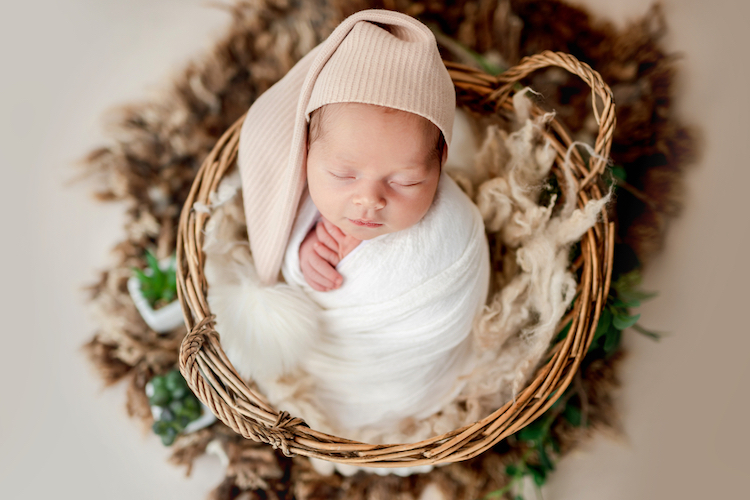
Stemming from another popular Irish name, Colm, Colman means “little dove,” making it perfect for your little boy.
Toward the end of her pregnancy in 559, St. Colman of Kilmacduagh‘s mother, Queen Rhinagh, was cast into the river with a heavy stone to weigh her down in order to kill the child, who was prophesied to be even greater than his father, the king. According to legend, God stepped in. The stone actually floated and brought the mother to safety. Colman was baptized in a well by two passing pilgrims who were healed of their own afflictions during the baptism. The well is still visited today as a place of pilgrimage. St. Colman went on to found a monastery in Kilmacduagh, Galway.
16. Columba / Colm

We got another one! Columba is the Latin form of the name Colm, both mean “dove.” We like both options here and they are indeed related to Colman. Born in 521, St. Columba is one of three chief Irish saints. Reported as founding 27 churches and 40 monasteries, Columba helped Christianize Ireland, Scotland and northern England. This pilgrim of Christ founded an abbey on the island of Iona that proved hugely influential in Britain and Ireland. He’s the patron saint of Derry where he founded a monastery before the age of 20.
15. Deaglan / Declan
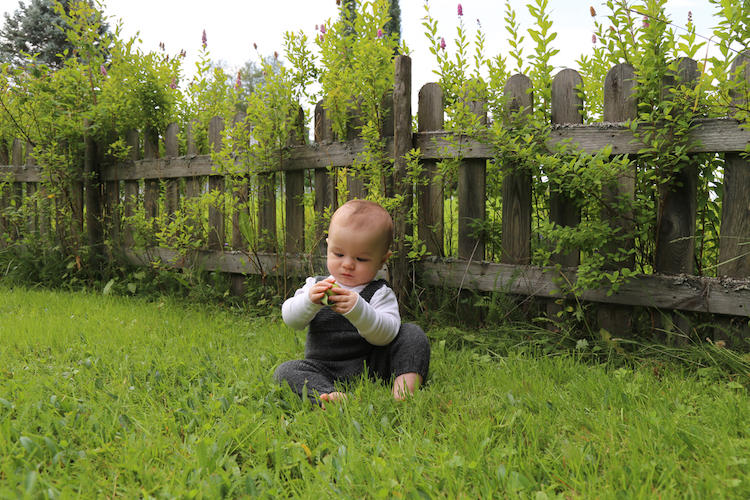
Meaning “full of goodness,” or “man of prayer,” Deaglan is the more traditional way to achieve this name, but we recognize Declan in the US as a rising Irish name for baby boys. St. Declan was baptized by St. Colman, who had seen a potential quality in the young boy’s ability to preach Christianity. He started spreading the faith before St. Patrick’s arrival and was ultimately confirmed as the Bishop of Ardmore in 448. Described as a “magnet” in the Waterford region, St. Declan was much loved, with many miracles being attributed to him.
14. Fionnbarra / Finbarr

The Irishman from Cork born in 550, on becoming a monk, went to have his hair tonsured. He was said to be relinquishing his beautiful hair (“finn barr”) for God, thus his name Finnbarr, or Barra. St. Finbarr went on to found many schools and churches and even got involved in building them. He is the patron saint of Cork. This name is a lot for a baby to shoulder today so you might be interested in honoring this saint with the name Finn which means “fair” or “white.”
13. Fintan / Finton

Previously a hermit, St. Fintan became abbot of a monastery in Clonenagh. He believed in severe austerity, and it was only after fellow monks complained about their restricted diet of bread and water, saying it wasn’t enough for them to be able to work, that Fintan relented and improved their diet but not his own. This name can be spelled Fintan or Finton and both are pretty straightforward. This Irish baby name means “white fire” or “white bull.”
12. Malachi / Malachy

Saint Malachy, meaning “my angel” or “messenger from God,” was born in 1025. Becoming ordained after the death of his parents, he went on to become the Archbishop of Armagh. Not only did he bring the Roman liturgy to Ireland, he was also a great prophet. The Malachi spelling is more popular in the US where it is a top 200 baby name for boys.
RELATED: 25 Rare Celtic Baby Names for Boys That Never Crossed the Pond
11. Ultan / Ultin

Perfect if your family can trace their roots to Ulster, as the name literally means “Ulsterman.” It is pronounced Uhl-tin. St. Ultan, who died circa 657, was elected Bishop of Ardbraccan by his kinsman, St. Declan. He rescued discarded babies and brought them back to his monastery to feed them, with the children prospering in his care. He also devoted his time to writing hymns, illustrating manuscripts, and collecting the works of his niece St. Brigid. Aptly he is the patron saint of children, sick children, and pediatricians.
10. Cellach / Kelly

St. Cellach was Archbishop of Armagh and an important contributor to the reform of the Irish church in the twelfth century. The head of the Irish church had been a layman up to that point. Cellach comes from Gaelic ceallach which means “war” or “church.” The name is related to those concepts and the meaning “bright-headed.” This name shares its origins with the unisex name Kelly, which is very popular in the US.
9. Budoc

Saint Budoc of Dol was a Bishop of Dol, venerated after his death as a saint in both Brittany and Devon. However, he had become a monk in Ireland in his most formative years. Saint Budoc is the patron of Plourin Ploudalmezeau in Finistère where his relics are preserved. The name’s Celtic origins mean “victory.” But, it is also a Breton name that means “saved from the waters.” This name is pronounced how it sounds, “BOO-dahck.”
8. Mél / Mel

Though most Mels are playing pinochle with Murray and Morris, there was a notable Saint Mel. He is one of the earliest Irish saints, a nephew of St. Patrick. He became a priest, then built a great monastery where he served as an abbot. He is known today s Mél of Ardagh. The Mel means “council protector.”
7. Ronan

Ronan of Locronan was an Irish pilgrim saint and hermit in western Brittany. He was a son of Saint Berach and the eponymous founder of Locronan and co-patron of Quimper (France), together with its founder, Saint Corentin. Ronan is the compelling legendary Irish baby name of twelve Irish and Scottish saints that is now drawing some deserved attention! Ronan means “little seal.”
6. Senán / Seanen

Senán mac Geircinn is a prominent Munster saint in Irish tradition, founder of Inis Cathaig (Scattery Island, Iniscathy), and patron of the Corco Baiscinn and the Uí Fhidgeinte. He is listed among the Twelve Apostles of Ireland. Legend has it that a giant sea creature, called “Cathach,” roamed and stalked Scattery Island. On his arrival on the island, an archangel led Senan to the highest hill from which he was able to locate the Cathach. Facing the ferocious animal, the saint made the sign of the cross and commanded him to depart.
Senán is an Irish name and related to Sean, Sionan, Seanen, and Shannon all of which mean “old and wise.”
5. Máel / Mael

Saint Máel Ruain was the founder and abbot-bishop of the monastery of Tallaght (Co. Dublin, Ireland). He is often considered to be a leading figure of the monastic ‘movement’ that has become known to scholarship as the Céli Dé. He is not to be confused with the later namesake Máel Ruain, bishop of Lusca.
The name is pronounced MY-el and the accent seems to throw most Americans, so yo can leave it off. This Irish name means “monk of St. Rudin.” It’s related to French and Breton name that “chief or Prince.”
4. Gibrian / Brian

Saint Gibrian was an early Irish saint associated with Reims and the Marne region. He was one of a group of siblings who were received by St Remigius at Reims, the seat of his diocese, and given permission to settle in the Marne region. Gibrian comes from an Old Celtic word connoting nobility. Thus this name can mean “honorable” and “noble.” It comes from the same root as Brian so feel free to go with the more manageable option!
3. Gerald

Gerald of Mayo is a saint of the Roman Catholic Church and Eastern Orthodox Church. Born in Northumbria, the son of an Anglo-Saxon king, he was one of the English monks at Lindisfarne who accompanied Colmán of Lindisfarne to Iona and then to Ireland. St. Gerald became the first abbot of the monastery of Mayo. Gerald has always been popular in Ireland, accounting for the prevalence of Fitzgeralds there. This name means “ruler with a spear.”
2. Éogan / Owen

Éogan of Ardstraw was the founder of a monastery there. His Vita contains a number of miracle stories. While going through the forest Craoibheach (modern day Cruagh) he sang fifty psalms and when his attendant answered “Amen” at the end of the Lord’s Prayer the trees all around also answered “Amen.”
Éogan is pronounced in the exact same way as Owen, its Anglicized form. Éogan’s Irish meaning is “born under the protection of the sacred yew tree.” It is also associated with the Greek word eugenes which gives us Eugene and means “well born.” Owen is the popular form today in the US and it is much easier to spell!
RELATED: 25 Baby Names for Girls Inspired by Irish Saints to Celebrate St. Patrick’s Day
1. Patrick

We couldn’t celebrate St. Patrick’s Day without talking about the name Patrick. Patrick is the Anglicized form of the Irish name Padraig pronounced, “paw-drig.” Or rather, the Irish adopted Patrick and turned it into Padraig.
Saint Patrick is the “Apostle of Ireland” and its patron saint. Thus, the celebration of St. Patrick’s Day is a celebration of Ireland itself. He is credited (although he certainly did not do it alone) with the Christianization of Pagan Ireland and considered one of the most impactful Christian missionaries of all time. The name means “nobly born” from the Latin name Patricius.
There you go! I hope you enjoyed this list of baby names for boys and found some worth considering. These storied Irish names and the saints who inspired them are an excellent way to celebrate your Irish heritage.
Mamas Uncut is THE online place for moms. We cover the latest about motherhood, parenting, and entertainment as well – all with a mom-focused twist. So if you're looking for parenting advice from real parents, we have plenty of it, all for moms from moms, and also experts. Because, at the end of the day, our mission is focused solely on empowering moms and moms-to-be with the knowledge and answers they’re looking for in one safe space.
Baby Name Generator
No baby name sounding good? Want a quick way to generate unique baby name ideas? Try our baby name generator below!
Set your terms (sex of the baby, number of letters, popularity, etc.) and then get a list of names that meet your criteria. Maybe the perfect name is just waiting to be generated for you.
